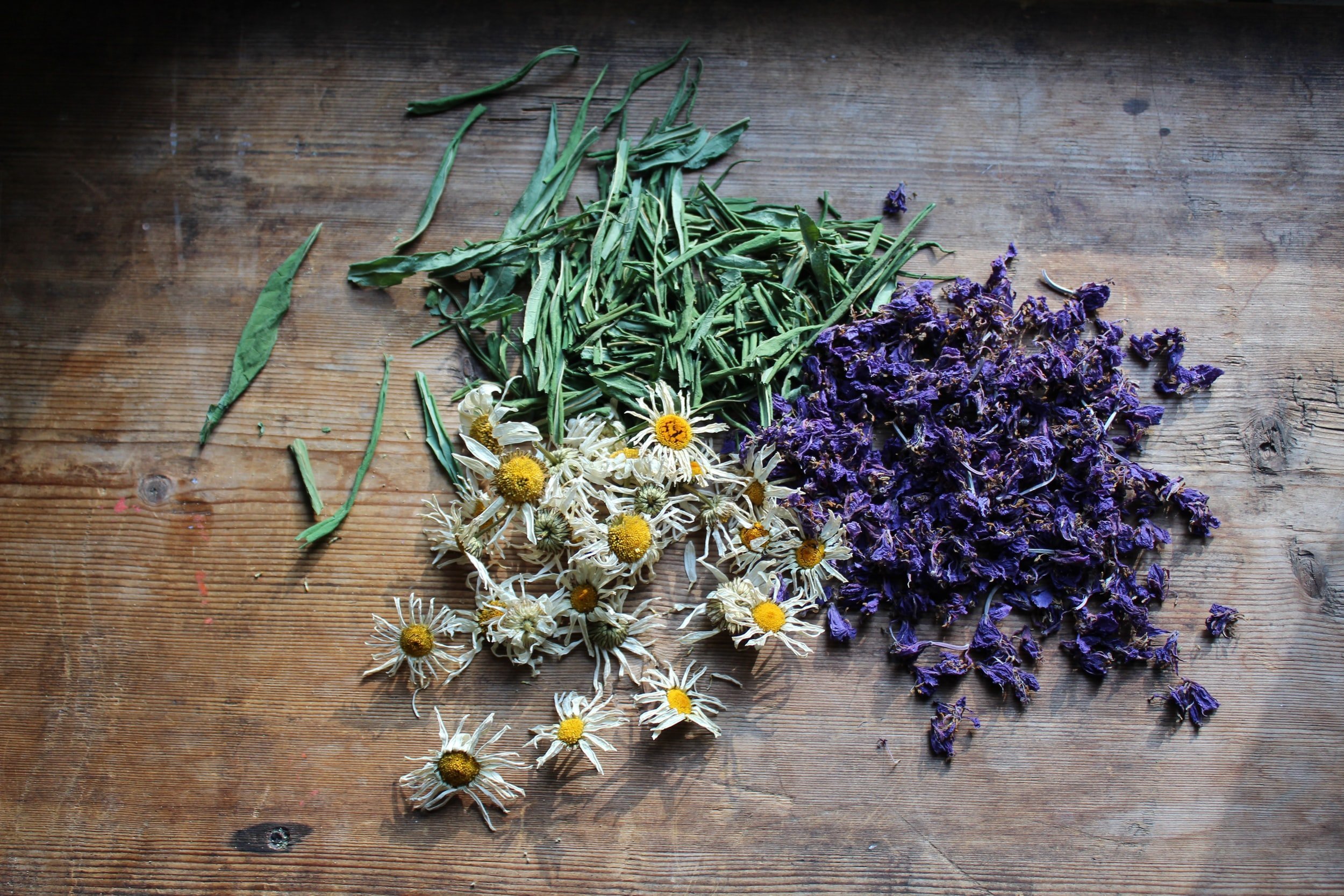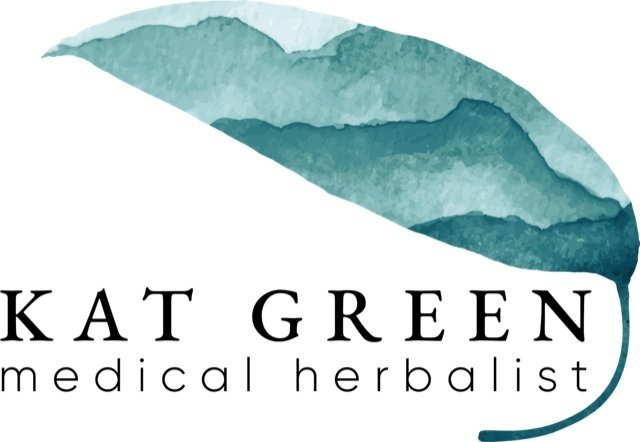Your questions answered.
-
Herbal medicine is a blend of modern science and traditional knowledge from thousands of years.
Interestingly, often scientific findings echo the plants’ traditional uses. For example, herbalists have been calling upon turmeric for its anti-inflammatory actions for years which have recently been confirmed by scientific studies.
Herbal medicine works gently, gradually and cumulatively to nudge the body into a healing process. The use of leaves, flowers, fruit, bark and roots contain thousands of constituents which are extracted using water or alcohol - depending on what is required.
An example of a modern medicine based on plants is sweet wormwood to treat malaria. The continued importance of plants in medicine is probably best illustrated by ongoing research and development still today; more recently psilocybin from mushrooms for clinical depression.
Herbal medicine values the whole plant with all its constituents whereas pharmaceutical drugs isolate one compound.
Herbalists believe that all the plant’s constituents work together synergistically and this is possibly the reason for fewer side effects. For example, a study on lemongrass which contains geranial and neral (volatile oils) exhibited antibacterial activity. Myrcene, another component in lemongrass, on its own was not antibacterial but enhanced the activity of the two components above.
Tinctures, teas, capsules, creams and pessaries are preparation types commonly found in herbal medicine.
If you’re unable to take an alcoholic preparation for any reason, let your herbalist know and they’ll give you another option.
-
Herbal practitioners registered with NIMH (National Institute of Medical Herbalists) are qualified to degree level as a minimum. The herbal medicine qualification requires at least four years study encompassing anatomy, physiology, pathophysiology, nutrition and plant science. Over 500 hours of practical, clinical experience are included in the training.
-
Yes, herbal medicine is safe. As with all medicines, it’s important the appropriate dose is taken.
Medical herbalists also take time to understand your medical history and any ongoing treatment. Not only does this help identify underlying issues, but it also enables your herbalist to avoid contraindications.
-
Yes, herbalists cover many considerations before prescribing herbs; including age, sensitivity and fragility. Each herbal formula is tailored to the person. Gentle, safe but reliable herbs are called upon for fragile and little people as appropriate.
-
Herbalists are trained in this area. Whilst there are many situations in which herbal medicine can be used alongside pharmaceutical drugs safely, medical herbalists take time to understand your medical history and any ongoing treatment. Not only does this help identify the underlying issues, but it also enables your herbalist to avoid contraindications.
-
The herbal medicine approach is pragmatic, holistic and builds the foundations for good health. Here are some examples of what herbal medicine can treat.
Digestive imbalances such as indigestion and reflux, irritable bowel syndrome, SIBO, inflammatory bowel disease, constipation, haemorrhoids, infections, diarrhoea.
Hormone imbalance including thyroid.
Peri-menopause, menopause, menstrual issues, infertility, PMS, irregular periods, PCOS, endometriosis.
Stress, anxiety and insomnia.
Chronic migraines and headaches.
Allergy and hay fever.
Osteoarthritis, rheumatoid arthritis, gout.
Respiratory and cardiovascular issues.
Autoimmune conditions.
Inflammatory skin conditions such as eczema, psoriasis, skin infections.
Urinary tract infections.
Cancer therapy side effects.
Recovery from surgery.
-
There isn’t one answer because our biological makeup is as unique as our medical histories and bodies heal at different rates.
Herbal medicine works gently, gradually and cumulatively in the body. That’s why, to get the most from herbal medicine, it’s beneficial to remember to take your doses as recommended (usually twice or three times daily).
A review after four to six weeks is the starting point to assess progress, sometimes two weeks.
Long-standing and complex conditions may take longer where therapeutic goals are prioritised and tackled over time.
For hormonal imbalances, roughly three cycles is a realistic timeline to notice improvement.
-
Herbal medicine has a good track record across a wide range of ailments, including management of chronic illness such as IBS or autoimmune conditions.
As with any treatment, success is partially determined by consistency. Maintaining small changes to improve health fundamentals and address triggers are as important as remembering to take your prescription, where appropriate. The aim is to discontinue herbal medicine once balance has been restored.
I’ve repeatedly seen how even chronic illness can be significantly improved to a point of good health and vitality.
Chronic illness encompasses many factors, that when aligned, culminate in disharmony that we experience as symptoms. Genetic susceptibility, environmental factors and triggers all form part of the equation.
However, it’s important to know that our genetic susceptibility (genetic variations, not monogenetic diseases) are a small part of the health equation making it possible to improve health by addressing external factors in our control.
-
Yes. Many plants have research and clinical trials which document their effectiveness. The European Medicines Agency (EMA) acknowledges evidence for herbal medicines and their efficacy and safety in traditional use, as well as scientific studies.
Modern science has increasingly researched and recognised the true value of plants, including their traditional uses. Popular drugs like aspirin are built around the active constituent parts of willow bark and there are many other examples.
The popularity and general awareness of specific herbs often increases following publication of clinical trials. Consider the recent popularity of turmeric root, for example. Turmeric has been valued for its anti-inflammatory properties for thousands of years but only recently confirmed by scientific studies.
-
They are different in approach but similarly are two forms of natural medicine that take mind, body and emotions into account.
Herbal medicine extracts the active constituents from plants using water-based or alcohol preparations, depending on which active constituents require extraction. This approach helps concentrate the constituents, which are prescribed undiluted.
In contrast, homeopathy dilutes plant material in a “potentized” form, using repeated dilution and vigorous shaking. Homeopathy also differs in the way that it not only uses plants but other materials such as minerals as well.

